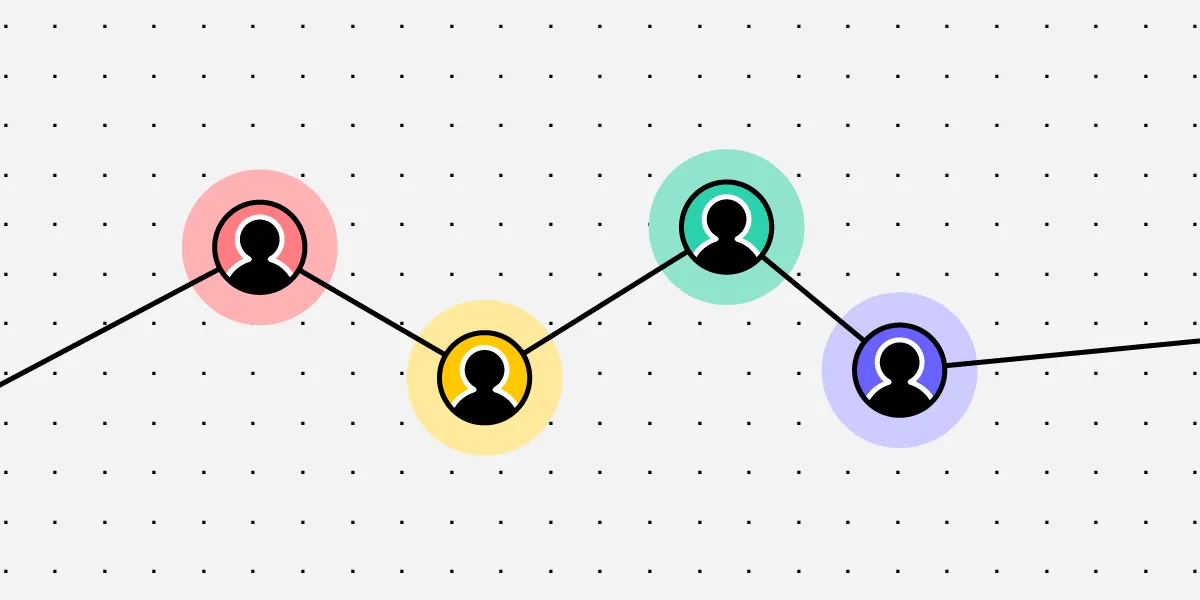In today’s hyper-digital environment, where consumer behavior is constantly shifting, businesses are expected to respond faster, personalize more deeply, and operate more efficiently. Marketing departments are under intense pressure to generate leads, retain customers, and deliver results—all while managing multiple channels and campaigns. Marketing automation solutions have risen as essential tools to meet these demands. They allow organizations to streamline repetitive marketing tasks, ensure consistent brand messaging, and make more intelligent use of data. Automation doesn’t just reduce workload; it enables smarter strategies, improves timing, and enhances customer experience by delivering relevant content at the right moment. As businesses compete for attention in saturated markets, these solutions offer a critical edge, allowing marketers to scale efforts, reduce human error, and focus on creativity and strategy rather than manual execution
What Are Marketing Automation Solutions
Marketing automation solutions are software systems designed to automate, streamline, and measure marketing tasks and workflows. They combine data collection, behavior tracking, campaign execution, and reporting into one integrated platform. Whether it’s sending personalized emails, tracking user journeys, assigning lead scores, or scheduling content, automation tools offer a central hub for executing highly targeted and efficient campaigns. For instance, if a user visits a pricing page multiple times, the system can automatically assign a higher lead score and notify sales for follow-up. Similarly, users who abandon a cart can receive automated reminders or discount offers to re-engage. These platforms gather valuable insights about customer behavior, allowing for real-time decisions and continuous optimization. By integrating with CRM systems and sales tools, Marketing Automation Solutions creates a seamless bridge between marketing and sales teams, ensuring everyone is aligned in their goals and activities
Benefits of Adopting Marketing Automation
There are numerous benefits associated with adopting marketing automation solutions, ranging from operational efficiency to improved customer engagement and higher revenue growth. One of the most significant advantages is the ability to scale campaigns without scaling headcount. Automation allows businesses to run complex, multi-touch campaigns across various channels—email, social media, web, and more—without requiring large teams to manage every task manually. This means that a small team can deliver results typically expected from much larger departments. Moreover, automation leads to better customer segmentation and targeting, helping companies deliver messages that resonate with each segment’s specific needs and behaviors. As personalization improves, so do open rates, click-through rates, and conversion rates. Additionally, automation enables real-time responses to customer actions, improving the chances of moving leads further down the sales funnel. Businesses also gain deep insights into campaign performance, allowing for ongoing refinement of strategy and tactics to improve ROI
Key Features to Look For
Selecting the right platform from the many available marketing automation solutions requires a clear understanding of the key features necessary for your business goals. At a minimum, a good solution should offer email automation, lead scoring, behavior tracking, campaign management, CRM integration, and robust analytics. However, features like dynamic content generation, personalized workflows, and A/B testing are becoming essential for modern marketing teams. The ability to create complex workflows using a visual builder makes automation more accessible, even for teams without technical backgrounds. Integration capabilities are also critical, as the platform should work seamlessly with your existing CRM, CMS, e-commerce system, and analytics tools. Advanced segmentation tools that allow for targeting based on user behavior, demographics, and engagement history are invaluable. Customizable dashboards and real-time reporting features make it easier to assess and adjust campaigns on the fly. The most effective solutions are flexible, scalable, and intuitive, providing room for growth and adaptation as marketing needs evolve
Email Marketing and Nurture Campaigns
Email marketing continues to be one of the most cost-effective and impactful channels, and marketing automation solutions enhance its power significantly. With automation, businesses can create highly personalized nurture campaigns that are triggered by specific user actions, behaviors, or timelines. For example, a welcome email series can be sent immediately after someone subscribes to a newsletter, followed by product recommendations based on their browsing habits. These automated sequences ensure timely engagement, keeping leads warm and guiding them down the conversion funnel. Beyond drip campaigns, marketers can use automation to send cart abandonment reminders, post-purchase follow-ups, and re-engagement emails to inactive subscribers. Automation also allows for testing subject lines, content formats, and calls-to-action through A/B testing, providing valuable data for optimization. By delivering the right message at the right time, email automation helps build stronger customer relationships and drives higher engagement without the need for manual oversight
Social Media and Content Automation
Social media marketing has become a critical part of any brand’s strategy, but managing multiple platforms manually can be overwhelming. That’s why marketing automation solutions now include features specifically designed for social media scheduling, content planning, and performance tracking. With automation tools, marketers can schedule posts across platforms like Facebook, Twitter, LinkedIn, and Instagram weeks or even months in advance. This ensures a consistent posting cadence, regardless of time zones or business hours. Automation also enables marketers to monitor engagement, respond to comments, and adjust strategies in real time based on analytics. Many solutions offer AI-powered content suggestions based on trending topics or past performance, helping teams create more engaging posts. Additionally, integration with blog platforms and content management systems allows for automatic distribution of new content to various channels, increasing visibility without added effort. The ability to plan, schedule, and analyze content performance in one place allows businesses to maintain a cohesive and effective social presence
Lead Scoring and Customer Journey Mapping

A major strength of modern marketing automation solutions is the ability to assign lead scores and map customer journeys based on behavioral data. Lead scoring assigns numerical values to actions such as email opens, link clicks, website visits, and form submissions. These scores help sales and marketing teams prioritize leads based on their likelihood to convert, improving efficiency and closing rates. For example, a lead who downloads multiple whitepapers and attends a webinar may receive a higher score than someone who only opened an email. At the same time, customer journey mapping tools allow businesses to visualize every touchpoint a prospect has with the brand. These maps help identify key decision-making moments, friction points, and opportunities for engagement. Marketing teams can then use automation to guide users through tailored paths, delivering specific content and offers based on where they are in the journey. This personalized approach boosts engagement, satisfaction, and ultimately, conversions
Integration with CRM and Sales Platforms
For marketing automation solutions to deliver maximum value, they must integrate seamlessly with customer relationship management (CRM) systems and sales tools. This integration ensures that all departments are working from the same data, eliminating silos and enabling more cohesive strategies. When marketing activities are visible within the CRM, sales teams can gain insights into a lead’s engagement history, such as which emails they’ve opened or which web pages they’ve visited. This empowers sales reps to tailor their outreach and close deals faster. Automated workflows can also trigger alerts to sales when leads reach a specific engagement threshold, ensuring timely follow-up. Additionally, integrated platforms can synchronize contact records, log interactions, and track campaign outcomes, providing end-to-end visibility from lead generation to revenue. A well-integrated automation system not only improves internal communication but also enhances the overall customer experience by ensuring a consistent and informed journey across all touchpoints
Analytics and Reporting Capabilities
Effective marketing in the digital age relies heavily on data, and marketing automation solutions offer powerful analytics and reporting capabilities to meet this demand. These platforms provide in-depth insights into campaign performance, allowing marketers to track open rates, click-through rates, bounce rates, conversions, and more. Custom dashboards enable teams to monitor KPIs in real time and make data-driven decisions. Advanced tools also allow for cohort analysis, funnel tracking, and ROI measurement. Predictive analytics are becoming more prevalent, helping marketers forecast future behavior and make proactive adjustments. For example, machine learning can suggest the best time to send emails or identify the most responsive audience segments. Reporting tools help identify underperforming campaigns early, allowing teams to pivot and optimize before resources are wasted. With automation, businesses can move from reactive to proactive marketing, continually refining their strategies to improve effectiveness and efficiency
Small Business and Enterprise Applications
Marketing automation solutions are designed to serve both small businesses and large enterprises, offering scalable features that can grow with the organization. For small businesses, automation provides a level playing field, allowing them to compete with larger firms by maximizing output with limited resources. Affordable entry-level tools often come with drag-and-drop builders, prebuilt templates, and guided workflows, making it easy for teams without technical expertise to get started. Startups can use automation to build brand awareness, generate leads, and convert prospects without the need for large marketing teams. For larger enterprises, automation offers advanced capabilities such as multi-language campaigns, account-based marketing, compliance tracking, and deep CRM integrations. These features enable large teams to manage complex campaigns across geographies and product lines efficiently. No matter the size of the business, the goal remains the same: to connect with customers more effectively, deliver relevant content, and drive business results through intelligent automation
Future Trends in Marketing Automation
As digital ecosystems evolve, marketing automation solutions are becoming more intelligent, intuitive, and integrated. One major trend is the rise of artificial intelligence and machine learning, which enable deeper personalization and predictive capabilities. AI can analyze large data sets in real time to determine what content to show, when to show it, and to whom. This results in dynamic content that adapts to user behavior, increasing relevance and engagement. Chatbots powered by automation can handle customer queries instantly, improving response times and customer satisfaction. Voice search optimization, interactive content, and immersive experiences are also being incorporated into automated workflows. Additionally, as privacy regulations become stricter, automation platforms are evolving to support better data governance, consent management, and compliance reporting. The future of automation lies in creating seamless, human-like interactions across channels while maintaining trust and transparency. Businesses that adopt and adapt to these innovations will be better positioned to lead in their markets
Conclusion
Marketing automation solutions have evolved into essential tools for modern businesses seeking to operate efficiently and grow strategically. They enable marketing teams to deliver personalized experiences at scale, improve collaboration with sales, and gain valuable insights into customer behavior. Whether you’re a startup aiming to generate leads or an enterprise managing global campaigns, the right automation platform can transform your marketing operations. With continuous advancements in technology, automation will play an even greater role in shaping the future of customer engagement. Choosing a solution that aligns with your goals and integrates with your ecosystem is key to long-term success in an increasingly data-driven and competitive environment
















